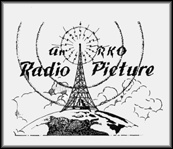The crickets and the rust-beetles scuttled among the nettles of the sage thicket. "Vámonos, amigos," he whispered, and threw the busted leather flintcraw over the loose weave of the saddlecock. And they rode on in the friscalating dusklight.
— Homage to the runic (obsolete?) vernacular of Cormac McCarthy
I quote the above out of desperation. This is me reduced to flinging rubber chickens. For almost a year now I've been keeping this blog, coaxing myself to become a better writer. I've learned that flippant is easy. Sincere is hard. So I challenge myself to be sincere when the material calls for it. But I'm not up to this task. Not yet.
McCarthy saps my will to attempt to cobble a respectable sentence e'er again. Dammit, Jim, I'm a scientist not a literaturologist! In the face of such isolate mastery of the English language I am unworthy to so much as fart the alphabet.
...
I love this novel. It is as bleak a vision of our condition as possible. An unnamed apocalypse has scorched and fouled the land, the sea, the air. World over. Cows and birds are extinct and the other animals too and nothing will grow again. No hope for long term survival. The story is a one-way journey into the despair of darkness, into a cave: In that cold corridor they had reached the point of no return which was measured from the first solely by the light they carried with them.
On the journey are a father and son, just a small boy. The story is of their perfect love for each other. The question stirred in me, on first reading, is what to make of their love, of their choice to continue to exist each only for the sake of the other, in a world that has nothing else to offer nor ever will.
McCarthy knows truths about the relation between fathers and sons that I'm not ready to face. About the passing of the torch. A day will come when I won't be able to pick up this book at all.
Mad Max makes the end of the world look like a helluva lotta fun. Boys love the postapocalypse because it's one wild rumpus, full of crossbows and mutants and your own sweet pair of greaves. But I've discovered an important distinction. We already knew that horror movies fall into two classes: the giddy fun-to-be-scared (bring a date) experience and, well, the kind where you just feel sick. The difference between them is hope, which comes from the characters' (and the audience's) empowerment. The Road is the first example of postapocalyptic fiction I've encountered that is no fun, no fun at all. Not when there's nothing left to fight (for). Nothing even left of the world to parse. The last instance of a thing takes the class with it. Dante wrote of no hell so terrible and true as this.
The Road as an American novel (it won the Pulitzer) participates in the tradition of the doomed survivalist; a tradition so basic to American lit that the short stories To Build a Fire, An Occurrence at Owl Creek Bridge and The Outcasts of Poker Flat are standard high school curriculum. These are grim tales...such fatalism is heritage in our Haunted Land.
[Recommended viewing: Grizzly Man. Film adaptation of The Road releases later this month.]

So! you still have my book !! I am glad you like it so much more than I did ... it was too bleak for me anyway. Reading the Road is like watching Requiem for a Dream for me (except there is no Jennifer Connoly)
ReplyDelete